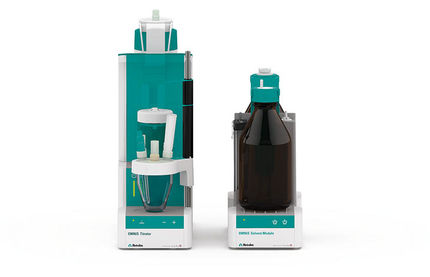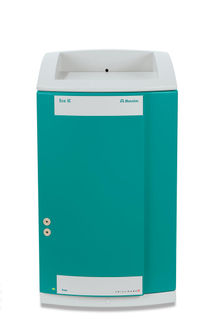To use all functions of this page, please activate cookies in your browser.
my.chemeurope.com
With an accout for my.chemeurope.com you can always see everything at a glance – and you can configure your own website and individual newsletter.
- My watch list
- My saved searches
- My saved topics
- My newsletter
Gamma thionin
Gamma-thionins (also known as plant defensins) are small evolutionarily related proteins of plants that serves for their defense from parasites. Product highlightThe following plant proteins are belong to this family:
In their mature form, these proteins generally consist of about 45 to 50 amino-acid residues. As shown in the following schematic representation, these peptides contain eight conserved cysteines involved in disulphide bonds. +-------------------------------------------+
| +-------------------+ |
| | | |
xxCxxxxxxxxxxCxxxxxCxxxCxxxxxxxxxCxxxxxxCxCxxxC
| | | |
+---|----------------+ |
'C': conserved cysteine involved in a disulphide bond. The folded structure of Gamma-purothionin is characterised by a well-defined 3-stranded anti-parallel beta-sheet and a short alpha-helix[1]. Three disulphide bridges are located in the hydrophobic core between the helix and sheet, forming a cysteine-stabilised alpha-helical motif. This structure differs from that of the plant alpha- and beta-thionins, but is analogous to scorpion toxins and insect defensins. References
Subfamilies
This article includes text from the public domain Pfam and InterPro IPR008176 Categories: Protein domains | Peripheral membrane proteins |
|||||||||||||||||||||||
| This article is licensed under the GNU Free Documentation License. It uses material from the Wikipedia article "Gamma_thionin". A list of authors is available in Wikipedia. | |||||||||||||||||||||||







